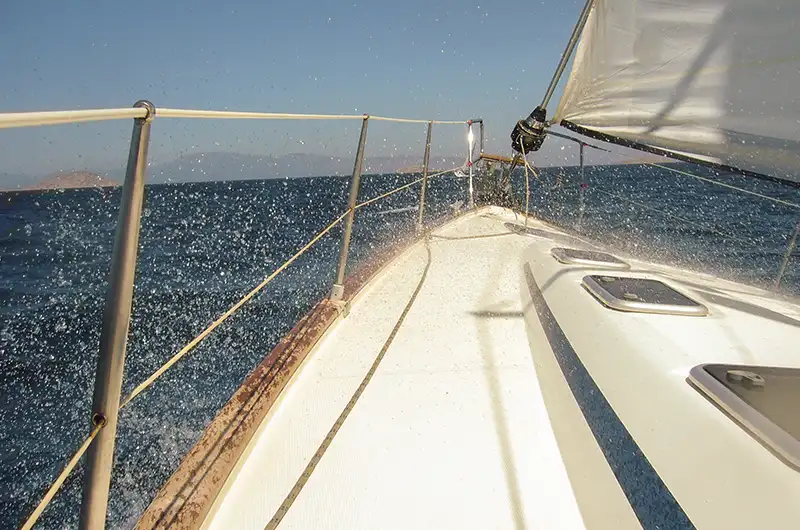
Sea sickness happens when your brain gets mixed‑up messages from your eyes, inner ear, and body. The fastest fixes are fresh air, eyes on the horizon, a steady head, and – if you’re prone – medicine taken before you cast off.
Why boats make bellies turn
Even seasoned captains can feel queasy when waves keep shifting underfoot. Researchers estimate about one‑third of all people are highly susceptible to motion sickness, while most of the rest will feel ill in very rough conditions.
A recent survey of Icelandic fishermen found nearly 88 % had battled seasickness during their careers – proof that practice alone doesn’t grant total immunity.
When the deck rocks, the balance organs in your inner ear scream “We’re moving,” but your eyes – especially if you’re below deck – say “We’re still.” That sensory mismatch triggers a part of the brainstem that controls nausea and vomiting.
Know your personal risk
- Age & sex: Children 2‑12 and women (especially during pregnancy or menstruation) feel it more often.
- Migraine or vestibular disorders: These conditions lower the sickness threshold.
- Sleep deprivation, strong odors, alcohol, and reading screens all make symptoms appear faster.
Understanding your triggers lets you plan the right counter‑measures.
How to stop sea sickness once it starts
Get air moving
Head to an open deck, loosen tight clothing, and breathe slowly from your abdomen. Cool, fresh air calms the nausea center and reduces clammy sweating.
Lock your gaze on the horizon
Pick a distant, stable object – land, clouds, or the ship’s bow – and keep it in the center of your vision. This “resets” the visual‑vestibular mismatch.
Stabilize your head and core
Sit mid‑ship near the waterline where pitch and roll are mildest. Rest your head against a seatback or lie supine if possible. Studies show lying flat cuts sickness severity even in heavy seas.
Sip and nibble
Take small sips of cold water or ginger ale and nibble a dry cracker. Empty but not starving stomachs tolerate motion better.
Distract, don’t doom‑scroll
Chat with a crewmate or listen to music. Reading or scrolling your phone amplifies sensory conflict.
If vomiting strikes, lean over the leeward side, keep hydrated, and consider medication (see next section). Severe, relentless vomiting can cause dehydration – signal the skipper and seek medical help if it won’t relent.
How to prevent sea sickness
Pick the right spot on board
Sit in the center of gravity of the vessel (near the mast on sailboats, by the wings on ferries). Although folklore says lower cabins help, a 260‑passenger Drake Passage study found cabin location alone didn’t change risk once passengers could lie down.
Eat smart
Light, non‑greasy meals the night before and morning of departure. Avoid spicy foods, caffeine, and alcohol, which irritate the stomach and dehydrate you.
Sleep and hydrate
Arrive rested and drink water steadily in the 24 hours beforehand.
Long‑term fixes for frequent cruisers
Gradual exposure
Spend short periods on calm water, then lengthen trips. Your brain can “train” to reconcile the motion conflict, much like a surfer gains sea legs.
Vestibular & physical therapy
Specialists run habituation drills – head turns, eye tracking, balance boards – that cut symptom intensity over weeks.
Lifestyle tuning
Regular cardio, core strength, and yoga improve proprioception and balance, making you steadier on shifting decks.
When to seek medical help
- Vomiting lasts more than 8 hours
- Signs of dehydration (no urine, dizziness, rapid heartbeat)
- Severe headache, double vision, or hearing changes
- Symptoms persist after returning to land (possible mal de débarquement syndrome)
Ship infirmaries list seasickness among their top reasons for passenger visits, right behind respiratory infections. Don’t hesitate to radio for assistance if a crewmate can’t keep fluids down – complications are rare but real.
A calmer course with Sea Tow
Feeling confident – and prepared – reduces anxiety, one of the hidden accelerators of nausea. Knowing that Sea Tow’s 24/7 captains are a call away for jump‑starts, fuel drops, or safe tows means one less thing for your stomach to worry about. Enjoy the ride, keep your eyes on the horizon, and let us handle the unexpected.
